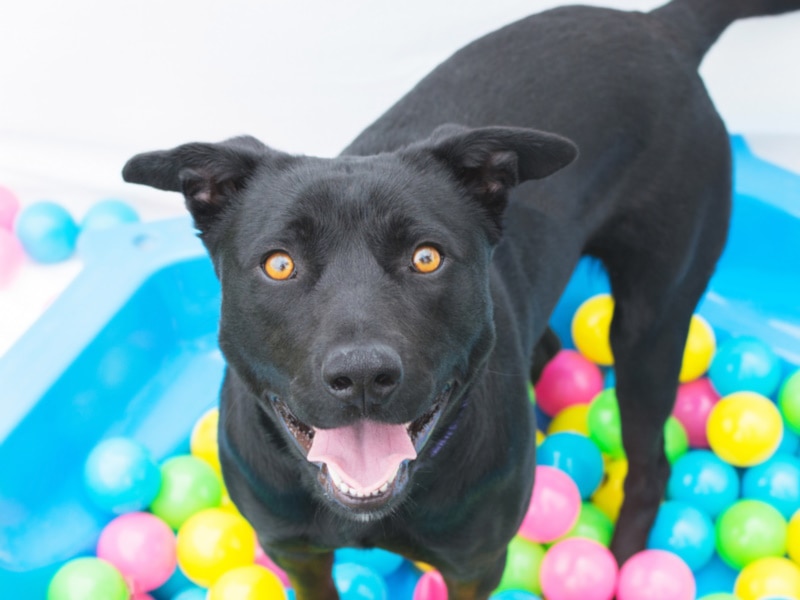Can CBD Help Dogs With Separation Anxiety? Facts & FAQ
By Lorre Luther
Updated on
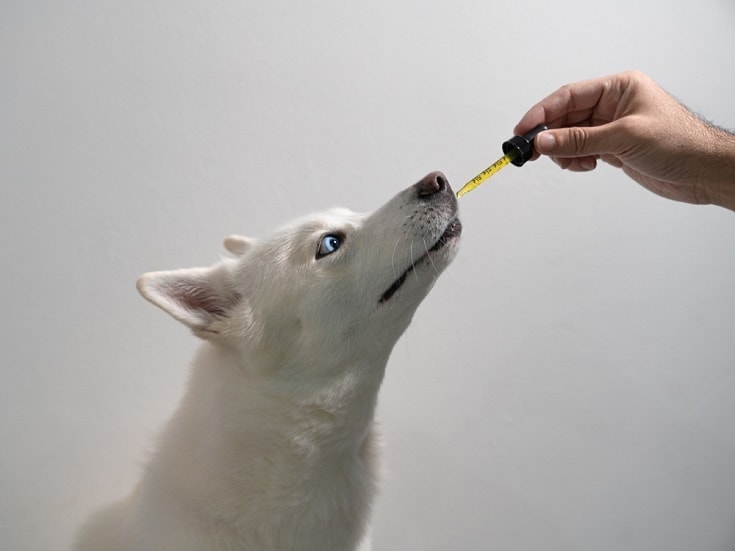
Click to Skip Ahead
Separation anxiety can cause your dog emotional distress and strain your bond with your pet. It’s best described as a canine panic attack that occurs when a dog’s favorite human leaves them alone for any length of time.
Dogs suffering from panic attacks often engage in destructive behavior such as urinating and defecating in the house, destroying furniture, and tearing up shoes. They also try to escape, which can be dangerous if they catch a paw or leg while trying to fight their way out of an enclosed space.
The constant whining and intense barking that often accompany the condition can cause serious trouble with neighbors who have to deal with continuous noise during the hours you’re gone. When separation anxiety is severe, it often makes people surrender their dogs.
Many owners have found CBD helpful in mitigating some of the most troublesome behaviors associated with separation anxiety.
What to Look for in a CBD Product for Dogs
Only purchase a product specifically designed for veterinary use. CBD oils and gummies for humans often have trace amounts of THC, which is harmful to dogs. You can find products in drops, powders, and snacks, making it easy to find an option that’ll work for your pet’s needs.
Always use products with precise dosing instructions so you can provide your furry friend with the exact amount of CBD appropriate for their weight. You’ll need to give your pet the CBD at least 30 minutes before you plan to leave home to give the product plenty of time to work.
As these products are entirely unregulated, it’s critical to look for a brand that uses independent laboratory tests for dosage and purity levels to ensure you know exactly what your dog is getting.
CBD works best when used as part of a comprehensive stress reduction plan, including increased exercise and training designed to improve your pet’s comfort with being left alone. More serious cases of separation anxiety often require a multipronged approach that includes desensitization, the introduction of short absences, and medication. If your dog suffers from severe anxiety, consider working with an animal behavioral specialist to create a plan to address your dog’s individual needs.
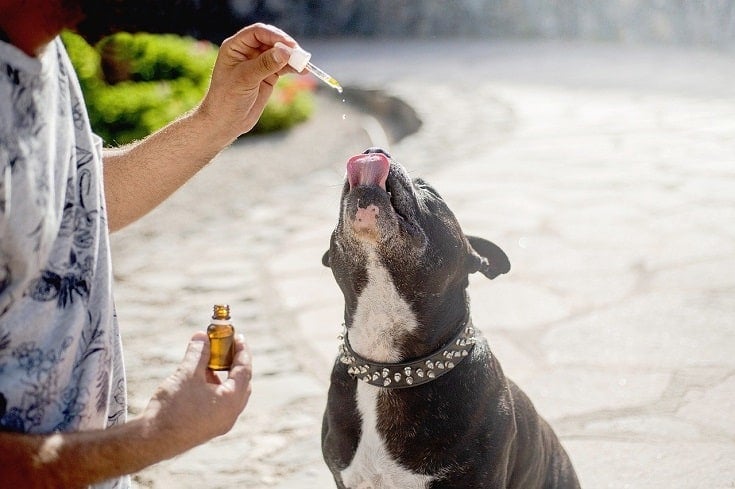
How Do I Know It’s Separation Anxiety and Not General Bad Behavior?
While there’s quite a bit of overlap between the behaviors you often see with separation anxiety and those that untrained dogs frequently exhibit, the circumstances surrounding the behavior offer important clues about what might be causing your dog’s behavior.
If your dog typically shows signs of stress right before you leave or while you’re getting ready to walk out the door, there’s a good chance your dog is suffering from separation anxiety and not just badly behaved. Look for indications of stress, such as drooling or pacing before you leave or while you get ready to depart.
Some dogs will actively try to prevent their favorite human from leaving. Uncontrolled barking immediately after you leave the house is another sign that you’re probably dealing with separation anxiety instead of just naughtiness. Remember that punishing a dog suffering from separation anxiety will only worsen the problem as it will increase your dog’s anxiety tenfold.
What Causes Separation Anxiety?
While no one is entirely sure what causes separation anxiety, there appear to be common factors often seen in dogs with the condition. Dogs adopted from shelters suffer from this sort of anxiety more often than those who’ve only had a single owner over their lifetime— leading some to believe that losing an important bond early in life could trigger the condition.
Some dogs appear to develop the condition when faced with major environmental changes, such as moving from one house to another or introducing a new baby to the household. Other animals can be sensitive to schedule changes and develop the disorder if their owner suddenly starts to work at a different time.
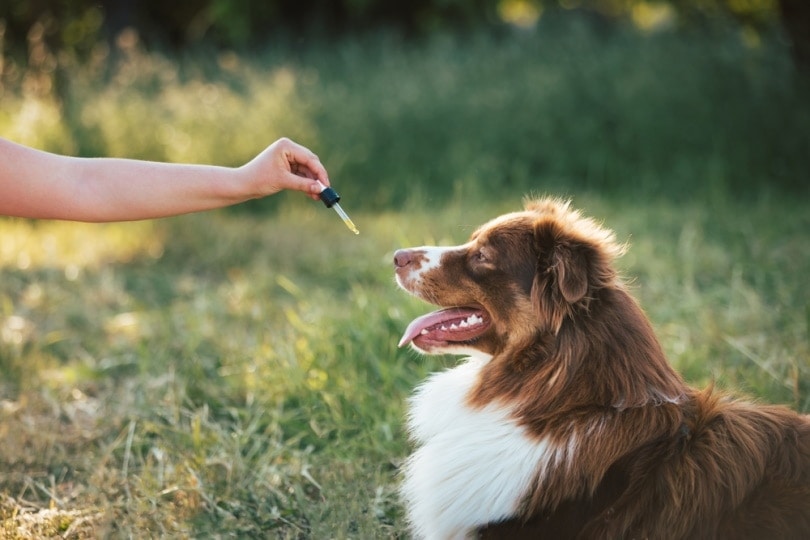
Will CBD Make My Dog Stoned?
No. CBD is a chemical found in marijuana plants, but it’s not the compound responsible for getting you high—that’s tetrahydrocannabinol (THC). THC is toxic to cats and dogs, and you should never give your pet any product containing even trace amounts of the substance.
Some CBD formulations for humans contain a trace amount of THC, but it’s usually not enough to produce any intoxicating effect in people. If given to your dog in sufficient quantities, the CBD products designed for humans can have severe consequences due to the cumulative impact of the THC present in the product, which is why it’s essential to select a product specifically formulated for dogs.
What Are the Signs of THC Poisoning?
If your dog gets too much THC from a CBD product, they’ll most likely become lethargic and have trouble coordinating their limbs. Hypersensitivity to sound, touch, and movement is also commonly seen in dogs with too much THC.
Other dogs have trouble controlling their bladder and end up urinating inside the house. A slow breathing rate, fast heartbeat, and low blood pressure are other common symptoms of a THC overdose. The lethal dose of THC for dogs is 3 grams per kilogram of body weight.
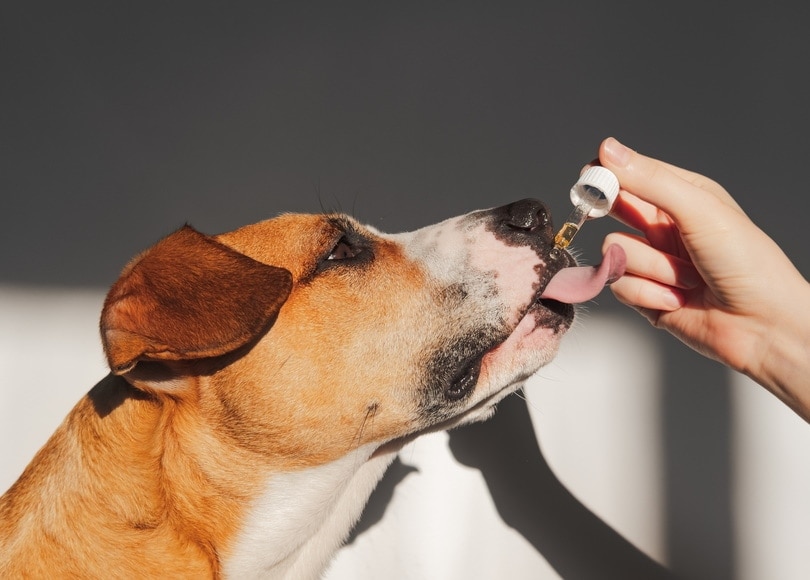
Do I Need to Take My Dog to the Vet if They Consume Too Much CBD?
If you’ve done your research and found a canine-specific CBD product that’s been tested by an independent laboratory and confirmed to be THC free, you probably don’t need to worry about taking your dog to the emergency vet. Expect your dog to be a bit lethargic, but ultimately they should be okay.
If, on the other hand, your dog consumes a CBD product designed for human consumption or one that may contain THC, you should contact your veterinarian immediately for advice. Be prepared to tell the veterinarian precisely what your dog consumed, how much, and how long ago. It’s critical to be honest about what your dog ate; otherwise, your buddy might be subjected to painful and unnecessary tests or misdiagnosed.
Final Thoughts
Separation anxiety can be a stressful condition for both you and your dog. CBD appears to reduce anxiety in some dogs, making it easier for them to tolerate the anxiety of being left alone.
If you choose to use CBD to manage your dog’s separation anxiety, make absolutely sure to select a product specifically designed for veterinary use, preferably one that an independent lab tests, so you can be certain of the dosage and that the product is free of THC.
Featured Image Credit: iAmMrBenjamin, Shutterstock



